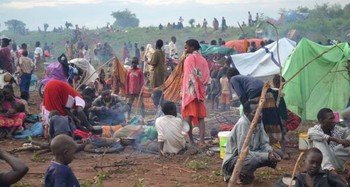At least 40% of the households interviewed by the International Organization for Migration (IOM) intend to leave the Wau protection of civilians adjacent area (PoCAA) where they are currently living in South Sudan, the agency said in a new report.
Half of the households, it said, plan to vacate by March of this year.
According to IOM, there are 35,496 people biometrically registered in the site, though headcounts conducted in December last year showed that only 15,271 people were residing in the PoCCA.
The new report cites an increase in the numbers of people willing to return to their homes this year, when compared to last year’s figures.
For instance, the report said, only 16% of Wau PoCAA residents interviewed in December 2017 showed willingness to leave the site.
“Some now see opportunities to re-establish their lives in their former habitual residences or a new area of their choice, with factors such as access to education and key services influencing decisions on where and when to move,” partly reads the IOM report.
IOM, however, said it is currently working on a settlement project to provide secure and conducive environment for at least 5,000 internally displaced people returning to their homes in Wau town.
In December 2018, IOM’s Displacement Tracking Matrix team surveyed 645 households in Wau PoCAA to better understand their intentions after a peace deal was signed in September last year.
The survey was to establish how many intended to leave Wau PoC AA site, the tentative time frame of return and return destinations.
“The majority (97%) of the people surveyed have a preferred area of return within South Sudan,” it said.
Most people cited general improvements in the security situation and assurances from government on safety as key for their return.
Finding of the survey, IOM said, will enable partners operating in PoCAA and beyond to make timely adjustments to programming and operations, maintaining services to those in need of protection at the PoC sites, while also engaging increasingly in areas of return.
The European Civil Protection and Humanitarian Aid (ECHO), Japan government, the UK’s Department for International Development, the Swiss Agency for Development and Cooperation and United States Agency for International Development (USAID) supported IOM South Sudan’s DTM activities.




